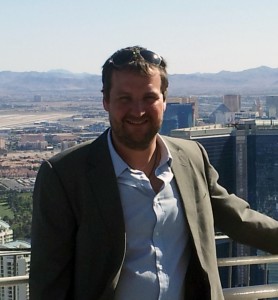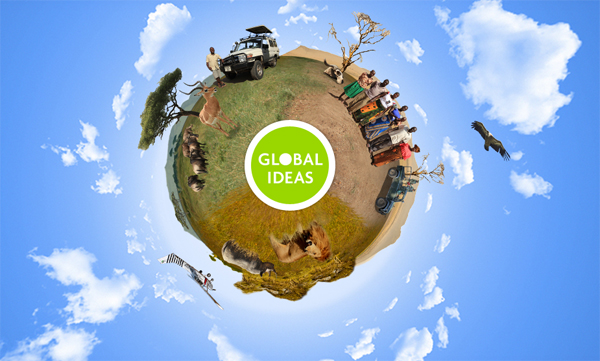Interview: Bettermann reflects on DW’s history and priorities
In an interview with the Times of India, Erik Bettermann, Director General of Deutsche Welle, highlights the work that we do and how the media business has changed over the last 60 years. In the interview, Bettermann is quoted as saying: “Citizen journalists have an increasingly important influence on the world. But the variety of sources on the Internet also means that it’s sometimes hard to know what information to trust. So, it’s increasingly important to have public service broadcasters for the sake of reliable information and quality journalism.”
Bettermann’s term as Director General ends at the end of September. The new Director General, Peter Limbourg, will be taking his place in office as of October 1.
Market roundup: September 2013
Asia
The Forever Group have picked up 170 hours of DW Transtel programming. Myanmar’s largest media company and the country’s first Pay TV provider, chose a wide variety of programming to be broadcast on the Readers Channel, a free-to-air educational channel that encourages audiences to read more. This contract represents the largest volume of programming that has ever been sold by DW Transtel in Myanmar. The Forever Group has also been acquiring DW’s complete programming line-up since 2011.
Audiences all over Afghanistan can now watch DW’s Euromaxx, Arts.21 and Drive it on one the country’s leading television stations, OneTV (1-TV). This rapidly growing private broadcaster, newly founded by Afghani investors hoping to promote principals of human rights and freedom of speech, specializes in covering news and current affairs. It has a very good reputation in Afghanistan with a target audience of young, educated information seekers. On the Afghani TV popularity index, OneTV ranks third.
Latin America
It’s primetime for DW in Uruguay as DW (Latinoamérica) grows more and more popular. The terrestrial broadcaster Río Uruguay TV is now a part-time programming partner broadcasting the DW formats Claves, Al volante and Visión futuro Sunday evenings from 8:00 to 10:00 pm. The broadcasting area covers the city of Fray Bentos and the province of Río Negro. Around 200,000 viewers can receive Río Uruguay TV and this new partnership features DW in the evening primetime slot.
Middle East
DW has forged a new partnership in Lebanon. A memorandum of understanding was recently signed with the Lebanese Broadcasting Corporation (LBC Group) that is paving the way for cooperation with DW’s World Stories. The Lebanese broadcaster will soon be contributing segments to the successful DW show. DW is also confident that cooperation will be expanding in the near future to include program acquisitions from DW (Arabia). The Lebanese newspaper As-Safir has also begun to include full articles and video boxes from DW on its online platform. As-Safir is a pan-Arab publication with readers from all over the Arab world.
DW has also taken steps to increase its social media footprint in Iraq. The very popular news and social media site Shakwmakw, which boasts 430,000 Facebook fans, will soon be posting new links to selected DW articles on a daily basis. The website was started during the Iraqi civil war as an online forum with the goal of encouraging positive exchange and communication between Iraqis regardless of their religious or ethnic backgrounds. Another popular social media platform biraqi, with over 350,000 Facebook fans, has signed a cooperation agreement with DW and are integrating links and teasers into their online content.
Online
The Kick off! Competition is now off and running in German, English, Spanish and Arabic – a great chance for soccer fans to show their knowledge of the German Bundesliga. DW is also now offering a free Tour of the German Parliament with a new multimedia project that takes you on an virtual tour of the plenary chamber in Berlin.
Election coverage heats up on DW
People in Germany will be going to the polls this month and DW has turned its focus to politics in with programming and online specials geared to the upcoming elections. On Journal, reporters assess the progress of the campaign for Angela Merkel and Peer Steinbrück, the two leading candidates for the Chancellor’s office, and explain where they stand on important current issues. People and Politics takes a look behind the scenes, analyzing the choices facing the German electorate and the significance of the election for Europe and the world.
DW will also be featuring special reports on its popular documentary series In Focus as part of election coverage beginning on Thursday, September 5 with “The Outspoken Challenger”, followed by “Power Broker” on Thursday, September 12. The final installment “Promises, Promises…”, will premiere on Thursday, September 19.
You can also turn to DW’s German Elections page for everything from campaign news, interviews, surveys and info-graphics to in-depth analysis that includes German foreign policy and economics. An interesting outside perspective on German politics is provided by a selection of international political caricatures that portray Angela Merkel’s image abroad.
Making online censorship obsolete
 Guest commentary
Guest commentary
Oliver Linow, Technical Distribution at DW
It’s not always easy to deliver reliable information to audiences around the world. During the Cold War, Deutsche Welle (DW) had to regularly deal with broadcasting signals being disrupted, preventing listeners in Russia and the Eastern block from tuning in. At that time it was known as jamming.
Technology and distribution channels may have changed and the Cold War now seems like ancient history, but the problem remains: There are still those who try and prevent international broadcasters like DW from reaching their intended audience. The perpetrators are governments, most notably in Iran and China, who are looking to buffer their citizens from international news and information online. But we don’t take this lying down. The Technical Distribution department at DW is responsible for ensuring that content is available on censored networks. And, over the last few years, we have been utilizing a censorship circumvention system developed by Psiphon Inc. based in Canada.
Psiphon works by using a network of different proxy servers (an intermediary between a user and an online source). Psiphon has also developed software and applications designed for desktop and mobile devices that circumvent online censors. DW uses these networks and applications to make content available in censored areas. When logging on to the proxy URL or when starting an application, users in Iran for example, will be redirected to DW’s Farsi homepage and users in China to the Chinese page. Other users are directed to a landing page and can then reach the respective DW site.
Thanks to the introduction of Psiphon technology, users in countries like China and Iran have been given the power to access unbiased information from reliable sources. By engaging in this technology, we have sent a message: DW will never give up trying to provide unbiased, quality news and information to ALL audiences around the world.
Predicting how these issues will play out in the future is difficult. There are currently many indicators that the Internet will be even more regulated. Whether it is to fight crime and terrorism, preserving moral and religious precepts (like preventing access to pornography in Arabic countries), commercial interests (when content providers have to pay network operators for quality access) or political interests and influencing public opinion – there are numerous motivations for filtering online content. The International Telecommunications Union (ITU), the United Nations specialized agency for information and communication technologies, refers to such measures as “Internet regulation”. Conversely, online activists want to see continuous, uncontrolled traffic on the information superhighway, and will speak out against even the smallest amount of censorship.
Getting around censorship is a game of cat and mouse requiring software that is continually updated in order to circumvent firewalls that are also continually improving in functionality. Soon Psiphon will provide an Application Programming Interface (API), a type of software which will equip certain Smartphone Apps with a censorship circumvention function. This technology would make DW Apps available in Iran and China.
In the future it will surely not be a simple task for international broadcasters like DW to provide worldwide Internet services on every network in every country. One thing we do know is that as technology expands and politics become more complicated, the issues related to Internet regulation will become more and more important.
A new perspective on the Serengeti, from Global Ideas
Our team from Global Ideas has never shied from adventures. They have been to the forests in New Guinea and Guyana, in the Favela in Rio de Janeiro, the coral reefs of Vanuatu and the streets of Mumbai. But the latest webdoc takes on even more unchartered territory – with a virtual safari in the Serengeti. Reporters from Global Ideas spent two weeks in May on the East-African savannah and recorded a majestic world. They witnessed the wildebeest migration and got close-up lions, zebras, rhinos and many other colourful creatures. The Serengeti is also in danger and the documentary brings experts together to explain how vulnerable this precious natural reserve really is. The project was produced in close cooperation with the Frankfurt Zoological Society (FZS).
Serengeti – Toward an Uncertain Future combines breathtaking photography with high definition video and audio to give you a fascinating multimedia experience, deep inside the animal kingdom.











Feedback